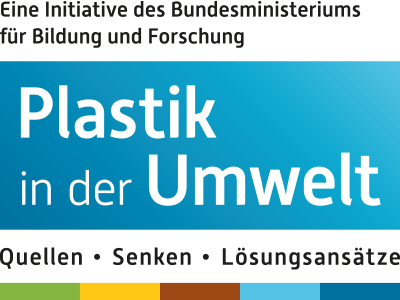KuWert
KuWert

Fridtjof Rohde
TECHNOLOG Services GmbH
Vorsetzen 50
20459 Hamburg
Phone: +49 40 7070768-20
e-mail: fridtjof.rohde@tlg-services.biz
The aim of the project was to develop concepts and preliminary planning for the implementation of an infrastructure for the collection, ship-based treatment, and marketing of plastic waste in order to reduce the input of plastic waste into the environment and marine ecosystems. The project's target regions were primarily less developed countries in the Global South. Using West Africa as an example, strategies for reducing the input of plastics (in this case macroplastics) into the environment were researched, because the input of macroplastics into the environment is particularly high when functioning waste collection and disposal systems are lacking. Stakeholder dialogues were conducted to assess whether a commodity chain based on plastic recyclates is possible on the West African coast. A prototype model ship was developed and used to determine costs.
Main areas of work
- Data collection, analysis and evaluation (local conditions in less developed countries)
- Preliminary planning of waste treatment plants
- Design of a concept for suitable ship and plant technology
- Development of strategies for the implementation of value chains in less developed countries
- Analysis and evaluation of results (economic, ecological)
WP 1 Basic evaluation – recording of plastic waste
Contact person
Dr. Martin Wittmaier, IEKrW, Neustadtswall 30, 28199 Bremen, e-mail: wittmaier-office@hs-bremen.de
Project partner
TECHNOLOG, Nehlsen, University of Mauritius, University of Sierra Leone
Short description
It was of utmost importance for the processing of the entire project to gain knowledge of the composition of the plastic waste that potentially was collected in less developed countries. To this end, data and information (types, qualities, quantities, framework conditions, logistics, etc.) were first collected, analysed and evaluated, including on site in the example countries Sierra Leone and Mauritius.
WP 2 Pre-design of a treatment and recovery plant
Contact person
Dr. Sven Rausch, Nehlsen GmbH & Co. KG, Wilhelm-Karmann-Str. 5, 28237 Bremen, e-mail: sven.rausch@nehlsen.com
Project partner
TECHNOLOG, IEKrW, University of Mauritius, University of Sierra Leone
Short description
In this WP, waste treatment plants were planned in various variants. For this purpose, national and international framework conditions connected with the construction and operation of the ship-based facilities to be developed were determined. Various known procedures were evaluated and tested for their suitability, as were requirements for operation, maintenance and repair. On this basis, the objectives for the treatment of plastic waste were defined, followed by the development of conceptual designs.
WP 3 Concept development (ship and plant engineering)
Contact person
Fridtjof Rohde, TECHNOLOG, Vorsetzen 50, 20459 Hamburg, e-mail: fridtjof.rohde@tlg-services.biz
Project partner
IEKrW, Nehlsen
Short description
Preliminary designs for up to three variants of carrier vessels/semi-submersibles for the treatment of plastic waste were developed with alternative shipbound logistics concepts. Rough planning included room planning and process-oriented arrangement of facilities, equipment for maritime technology, equipment for waste treatment plants, etc. The production costs and energy requirements were also determined and the variants were compared economically.
WP 4 Marketing potential of secondary raw materials
Contact person
Dr. Sven Rausch, Nehlsen GmbH & Co. KG, Wilhelm-Karmann-Straße 5, 28237 Bremen, e-mail: sven.rausch@nehlsen.com
Project partner
IEKrW, TECHNOLOG
Short description
The market for secondary raw materials was examined, since these are fundamentally valuable. Tradeable products from plastic waste were identified and the quality requirements to be met specified. Possible revenues were also estimated. The resulting technical requirements for processing technology and quality management were taken into account in the other WPs. Based on the results, strategies for the most economical processing and marketing of products made from plastic waste were developed.
WP 5 Profitability analysis and life cycle assessment
Contact person
Dr. Martin Wittmaier, IEKrW, Neustadtswall 30, 28199 Bremen, e-mail: wittmaier-office@hs-bremen.de
Project partner
TECHNOLOG, Nehlsen
Short description
The concepts and preliminary planning for the ship-based collection, processing and marketing of plastic waste from less developed countries developed in the project were evaluated under economic and ecological aspects. On the basis of the results, the ecological advantages (reduction of the input of plastics into the environment, protection of resources by recycling plastic waste) were determined. The evaluation of the economic efficiency was intended to assess the chances of realisation and provide a planning framework for potential investors, funding providers and operators of a ship-based collection and treatment plant for plastic waste.
WP 6 Project management, public relations, recycling concept
Contact person
Fridtjof Rohde, TECHNOLOG, Vorsetzen 50, 20459 Hamburg, e-mail: fridtjof.rohde@tlg-services.biz
Project partner
IEKrW, Nehlsen
Short description
Within the framework of WP 6, work was carried out on internal and external communication (project meetings, workshops, communication between national and international partners including maintaining contacts with interested shipping companies/shipowners, public relations, etc.) and project management (administrative and content-related reporting, work and progress control and coordination, etc.).
